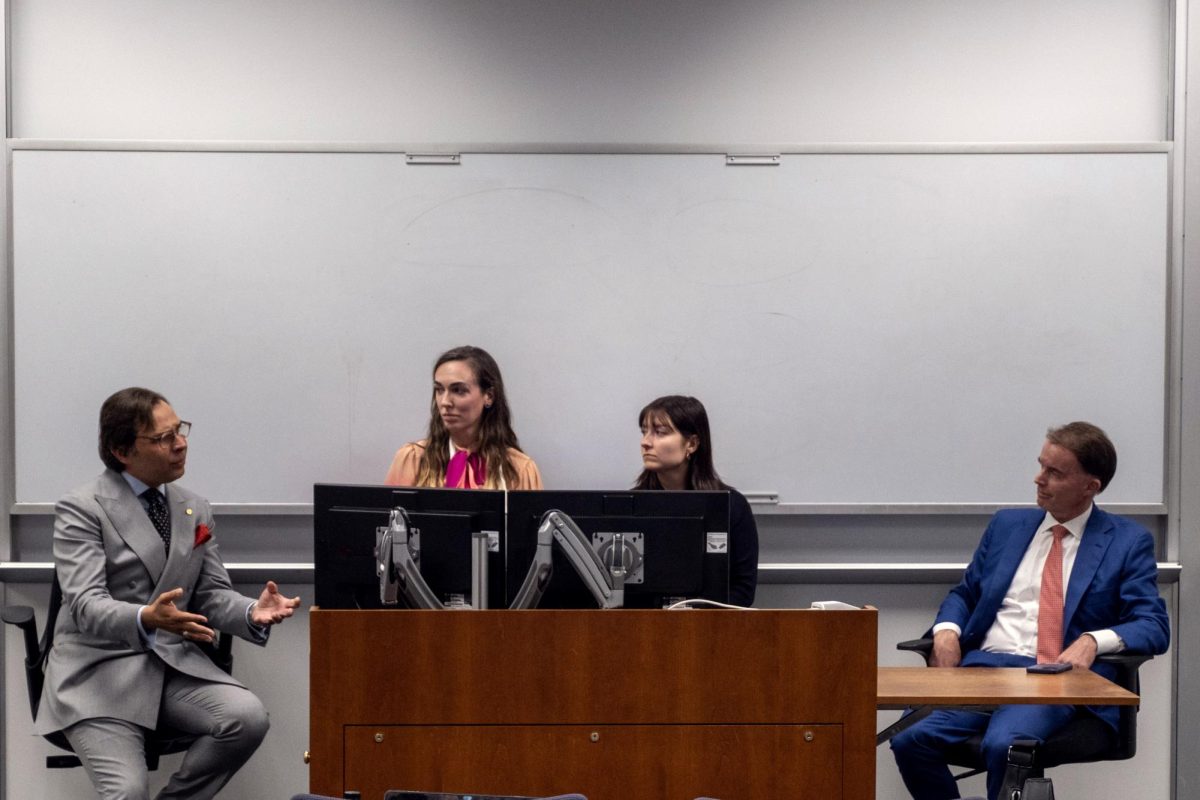This Tuesday, Tulane University hosted a debate on the ethics of war between Frédéric Sourgens, director of the Tulane Energy Law Center, and Charles “Cully” Stimson, senior advisor to the president of The Heritage Foundation — between, in other words, an academic and a conservative. It went well. Both speakers pledged at the outset to avoid references to modern conflicts and only talk about war in the abstract, so as to remove emotions.
They kept the discourse civil. They agreed on many points. They differed respectfully. Sourgens even remarked at one point that it was a discussion rather than a debate. They overcame their political differences, whatever those were, for the sake of the discourse. I wish Tulane would invite more Conservatives to debate on campus.
I seem to be alone in this opinion among the 85% of sampled Tulanians who planned on voting for former Vice President Kamala Harris. Many of my Liberal friends opposed the debate on Tuesday. To them, Stimson’s politics precluded him from civil discourse. They thought Tulane was promoting dangerous ideas by allowing him to speak on campus. They reminded me why we lost the election in November.
There is a strange tendency on the left to panic at the mere presence of a Trump supporter, whether on campus or online, even when President Donald Trump himself is in the White House. Their fear of “platforming” conservatives would make sense if Conservatives did not have a platform — but it makes no sense when Republicans control all three branches of government. They have the biggest platform in the country.
The supposedly dangerous ideas that Tulane allowed on campus are the same ones being projected daily from the White House, the same ones for which 77 million Americans voted in November. For that reason, we should welcome conservative ideas on campus, where, unlike in Washington, they are challenged. If we disagree with Trump’s positions, and cannot prevent their dissemination, we need to contest them whenever we can. Otherwise, we are letting them float around unchallenged.
The objections I heard from other Liberals reflect a larger movement in academia, over the past few decades and especially since 2016, to dismiss or ignore conservative ideas. The positions on which Trump has built his political career are, to many academics, so absurd, so objectively wrong, as to be outside the realm of scholarly discourse. Experts in international relations do not want to waste their time proving the righteousness of Ukraine over Russia; scientists think it is below them to rebut the medical advice of Robert F. Kennedy Jr. That is the wrong attitude.
The realm of discourse belongs to the people, not the schools. They decide what is worth talking about. To ignore or suppress the viewpoints that seventy-seven million Americans embraced in the last election, however much one disagrees with them, is to remove oneself from the discourse of our democracy.
If Democrats are to take back the White House in 2028, they must win back millions of voters who broke for Trump in 2024. One way to ensure that they remain in the conservative camp is to shun and censure them.
I, too, wish that all Americans believed what I believe. But they do not, and it is my job, as a participant in a democracy, to change their minds. I have no interest in scoffing at them with fellow Liberals. Their votes matter more than my pride.



